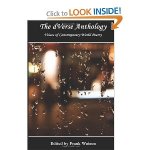Enter stage right: plutocrats, oligarchs, privilege, inherited wealth, ideology, self-interest and greed for power by those with a wilful ignorance and disregard for the lives of the majority...
 |
| City of London in the Rain, looking East © 2008 John Anstie |
I'd also like to ask what happened to that parallel part of English law, which espoused equity*?
Fairness, common sense, a duty of care, courtesy and respect are amongst the most important cornerstones of a civilised society, as opposed to one that's in danger of reverting to the feudal system of the Middle Ages. So too are the desires for the sharing of knowledge and the promotion of understanding, as well as for compassion toward those, whose birthright endowed them with far less privilege, education and opportunity than an elite, who continue to dominate the order of things, both politically and economically. But I for one do not understand the language used to justify what happens in the City of London (and in the other financial centres of the world), which sometimes appears like the product of smoke and mirrors; like the law, which sometimes seems deliberately so complex as to cause us to switch off and give up trying to understand it. We need far greater clarity, in a language that most of us can understand to explain the importance of this ... without the arrogant pomposity and the dismissiveness we've come to expect of the boys from Eton (and from those envious wannabe's, who sell their souls to the party line).
I suggest to those who argue that extravagant rewards (and low or zero tax liability) for the super-rich, apart from encouraging ambitious young apprentices (aka wannabe's) to follow their footsteps, is the only way to keep 'em here, creating employment, that this claim is illusory; evidence the state the majority of the population is currently in, an increasing number of whom are still falling towards a poverty trap. When compared to the current height of many stock market indices, the activity of the construction sector, which customarily leads us out of recession and unemployment - despite the very recent slight fall in the latter - there is a disconnect with the wellbeing of the population at large.
Apart from any other measure of the apparent health of the economy, there are too many honest tax payers, who are, quite frankly, pissed off with the utterly brazen behaviour of large companies, who manage to avoid paying tax and the equally brazen response of a government, who are too obviously preoccupied with their political ambitions, and their main party donors, to make no mention of the fact that they are still in government because of their coalition with an albeit very weak second string opposition. I believe there is a swathe of the population, who quite frankly don't give a damn any more! Because they are continuing to pay for the greed and rash behaviour of a group of people, who do not deserve to be bailed out, at least in the way they were in 2008 and subsequent decisions made about their ongoing bonuses. Previous governments (the plural is deliberate) should not have allowed the credit bubble to become so horrendously large and unstable in the first place.
What we are left with is a debt owed to us, the taxpayer, by the banks in the UK. The original figure paid in some form or other out of Treasury funds (that's your money and mine, by the way) was a total of £1,162,000,000,000 - that is over One Trillion or One Thousand Billion or One Million Million in modern speak - how many years could we run a healthy NHS, education system on that and/or how much of the national debt could be paid off!! OK, it isn't that simple, I know, but would somebody explain to me why? When asked the questions: what will be the final cost to the UK taxpayer, the answer recorded in the National Audit Office web site is that, basically, it's uncertain; there are all sorts off caveats leading to statements like it will be a 'number of years' before the final cost to the taxpayer is known!
In fact, despite my own reasonable level of numeracy and literacy, I found it quite difficult to understand from the NAO web site what level of 'support' is still ongoing, what 'support' actually means, what has been repaid and by whom, and what is the existing actual debt. Perhaps I should spend a few more hours there trying to work it all out or perhaps not! The only figures that are reasonably clear, reveal that the Treasury / Taxpayer originally 'invested' £66 Billion in RBS and Lloyd's Banks, which, at the last time of reporting (July last year), astonishingly still only, apparently, has a market value of £38 Billion!! So, looking at the current record performance of the FTSE 100 share index, that was a good investment wasn't it!
 |
| The River Thames, City of London, looking East © 2008 John Anstie |
What is also clear is that there are too few banks that are far too big, as well as other financial institutions, not to mention huge multinational corporations, which means that, contrary to the spirit of a healthy market place, we are in an unhealthy position that gives too few companies too great a market share to enable proper competition - ironically, I thought, one of the tenets of the Conservative Party's ideology - and, perhaps most worrying of all, a powerful lobby, and, thereby, a nascent, if not already realised 'control' over government to the point where they can dictate policy and even the law (who mentioned the Gagging Bill?). Let us not forget the meaning and the potential horror of fascism, one of several possible political extremes we absolutely do not want to bring about!
I've never felt more sure of anything in my life, than that things must somehow change, and soon! But, whatever happens, let us make sure that change is far more equitable and democratic than currently appears to be the case! The power of the voters' voice must not only be made clear, but also it must be heard above the powerful minority, in government, corporate and media arenas, who currently appear to be dominating proceedings and patently guilty of ignoring that voice. One thing I am still convinced of is that Russell Brand's 'None of the above' philosophy is wrong in one important way: not voting would put us on the road to granting a greater share of power to more extreme political factions.
Enter stage left: common sense, integrity, honesty, some humility and respect for a people, who deserve far more than currently afforded them by those they elect to manage their country ... let the play commence.
Written content and Photos © 2014 John Anstie all rights reserved
Written content and Photos © 2014 John Anstie all rights reserved
* Equity is defined as the quality of being fair or impartial; also called chancery. The application of the dictates of conscience or the principles of natural justice to the settlement of controversies. A system of jurisprudence or a body of doctrines and rules developed in England and followed in the U.S., serving to supplement and remedy the limitations and the inflexibility of the common law.


